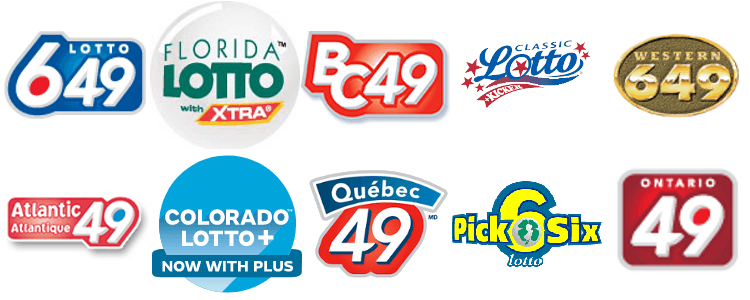
Back on March 3rd, 2024 we published a blog article about comparing our why page with a mini lottery.
In that article, you can see the results one can expect by rolling a dice.
The Real Thing - Real Lottery Breakdown
Now let's look at the odds with real lotteries and crunch some realistic numbers.
A typical state or provincial lottery in the US or Canada would normally have millions of possible combinations.
There would also be millions of players for each lottery.
A popular format for a lottery is choosing 6 numbers from a pool of 49 numbers.
This play format is used in the following lotteries in the US and Canada:
- Florida Lotto (US)
- Colorado Lotto (US)
- Classic Lotto (US)
- Lotto649 (Canada)
- Western49 (Canada)
- Atlantic49 (Canada)
- BC49 (Canada)
- Ontario49 (Canada)
- Quebec49 (Canada)
The odds of winning this style of lottery is 1 in 13,983,816.
We will be posing 2 questions.
1) "How many draws will it take so each combination has been drawn at least once?"
The answer may surprise you.
With the odds of winning being 1 in 13,983,816, one would figure the number of draws would be close to 13,983,816 draws.
However, we crunched the numbers multiple times programmatically to find the average using a simulation.
In order for each combination to be selected at least once, we would need on average 238,000,000 draws.
That is a lot of draws!
If we breakdown these results, each combination was chosen at least 16 times. That is 16 duplicates on average per combination. The highest number of times a combination was drawn was 44 times in our case studies.
The lowest, well 1 because of the rules we had....ie "How many draws would it take so each combination has been drawn at least once?", so our simulation stopped after each combination was hit.
The reason the results are so high is because lottery draws are random.
Bottom line...random numbers produced duplicates and as you can see by the results, a lot of duplicates.
2) "How many lottery combinations would be chosen if we had 13,983,816 draws?"
A slightly different approach but equally as surprising results.
Again, we ran a simulation and on average we would hit 8,839,200 different sets of lottery numbers.
That is only 63% of the total number of lottery combinations.
What that means is roughly 37% of the lottery combinations were never hit.
Why?
Again, because random selections produce duplicate entries.
How Do We Better the Odds of Winning the Lottery?
As you can see by the 2 questions posed above, the odds are not in one's favor with random numbers because duplicates are produced.
The odds can be made better by the method of systematically choosing lottery numbers.
Currently, the method which people are playing the lottery collectively is random. So the odds of winning would be reflected by the 2 questions we asked above.
However, collectively, if 13,983,816 players used systematically chosen numbers, then there is a 100% chance of one of those players winning the lottery.
Systematically choosing numbers will removed the possibility of duplicates. It will ensure that all possible combinations of lottery numbers are provided to players.
Math doesn't lie.
Our site is the only lottery supporting website which is generating lottery selections systematically.
It is there for the benefit of the players.
Play Chosen Numbers and collectively increase your odds of winning.